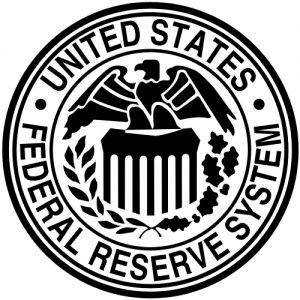Debit card issuers subject to the Durbin Amendment’s interchange price controls saw their average authorization, clearing, and settlement expense, excluding fraud, fall to 3.6 cents per transaction in 2017, down 54% since 2009, the Fed reported Thursday.
The Durbin Amendment to 2010’s Dodd-Frank Act requires the Fed to issue a report every two years about debit card issuers’ various costs. This latest report is for the year 2017; the Fed’s first such report was for 2009.
The new report says the average per-transaction authorization-clearing-settlement (ACS) cost was 4.2 cents in 2015. The base regulated interchange rate of 21 cents plus 0.5% of the transaction value exceeded the average ACS cost, including issuer fraud losses, for 76% of “covered,” or regulated, issuers—those with more than $10 billion in assets—and 99.7% percent of transactions on covered issuers’ cards in 2017.

The Dodd-Frank Act charged the Fed with writing rules, now known as Regulation II, to implement the law’s requirements. Besides the interchange price controls, they include rules on debit card transaction routing meant to assure merchants with a choice of networks.
Payment card networks processed 68.5 billion U.S. debit and network-branded prepaid card transactions valued at $2.62 trillion in 2017, the report says. Total transaction volume grew 5.6% percent from 2016 to 2017, slower than the 7% growth recorded from 2015 to 2016, according to the Fed.
So-called dual-message networks such as Visa Inc. and Mastercard Inc., which traditionally have processed mainly signature-authenticated transactions, accounted for 64.9% and 65.1% of total transaction volume and value, respectively. Single-message networks, which typically process PIN-authenticated debit transactions, accounted for the rest.
While they have smaller market share, the single-message networks are growing faster. From 2016 to 2017, dual-message and single-message networks experienced transaction growth of 4.7% and 7.2%, respectively. “While dual-message network volume grew faster between 2009 and 2014, for the past three years, single-message network volume growth has surpassed that of dual-message networks,” the report says.
Interchange fees across all debit and general-purpose prepaid cards—both covered and non-regulated—totaled $20.7 billion in 2017, up 5.9% from 2016. “The average interchange fee for covered transactions on both types of networks, in addition to the average interchange fee for exempt transactions on dual-message networks, has not changed materially since Regulation II took effect in the fourth quarter of 2011,” the report says. “These fees stood at 23 cents and 52 cents, respectively, in 2017.”
In contrast, interchange on PIN-debit transactions earned by exempt debit issuers, those with less than $10 billion in assets, is falling gradually, the report notes. The average interchange fee for exempt transactions on single-message networks was 31 cents in 2011’s fourth quarter, but it was down to 25 cents in 2017.
Network fees totaled $7.03 billion in 2017. Merchant acquirers paid 63% of those fees and issuers paid the rest, according to the Fed. “In recent years, the percentage paid by acquirers has increased slightly while the percentage paid by issuers has correspondingly decreased.” But the average network fee per transaction was 10.3 cents in 2017, which has not changed substantially since 2011.
Regarding fraud, the report says losses to all parties on regulated issuers’ cards was 11.2 basis points, or $11.20 per $10,000 in transaction value, up from 10.3 basis points in 2015. Merchants absorbed 53% of 2017’s losses, up from 39% in 2015.



